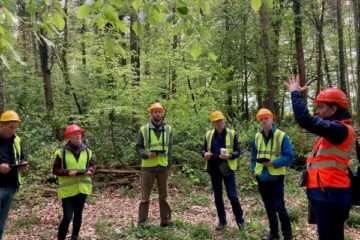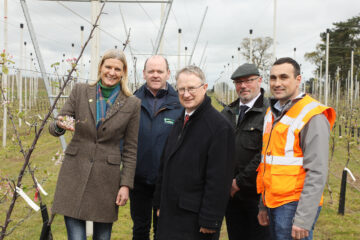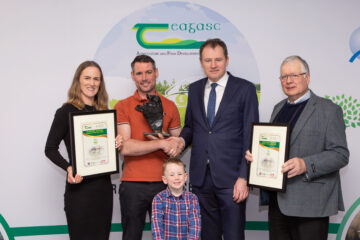Teagasc organised an ‘Energy and Biosecurity – Considerations for the Poultry Industry’ event this week which took place in the Hillgrove Hotel, Monaghan. This event was run in conjunction with IFA, Animal Health Ireland (AHI) and the Department of Agriculture, Food and the Marine (DAFM). The event about Considerations for the Poultry Industry covered two very topical issues of energy and biosecurity, which are facing poultry producers.
As the poultry sector faces into a high risk period for Avian Influenza, it is crucial poultry producers implement stringent biosecurity measures on their units. Avril Hobson, Senior Superintending Veterinary Inspector with DAFM, gave the high number of attendees an update on the current outbreaks in the UK. The UK has seen over 160 cases since October 2021, with new cases almost daily. Dana Simpson, vet with St David’s Poultry Team, gave the producers very practical information for measures which can help reduce the risk of introducing disease on farm.
As the cost of energy has increased significantly in recent months, the presentation on this topic was eagerly anticipated by producers to gain an understanding on how to become more energy efficient with the current systems they have in place. Mel Gavin, from Atlantic Technological University (ATU), detailed some energy saving measures which can be implemented on poultry units. He also explained the grant options for the installation of Solar PV arrays.
Rebecca Tierney, Teagasc’s Poultry advisor, gave a presentation on the poultry Signpost Programme farm, Belview Eggs. This free-range egg producer is located in county Louth and has 60,000 birds. Through the Signpost Programme, Belview Eggs are establishing the energy consumption for the production of free-range eggs. They are investigating the options for solar panels on the unit. Carbon footprinting is also being carried out to establish the carbon footprint for one dozen eggs. Rachel Johnson, General Manager for Belview Eggs, gave details on their involvement and also discussed their recent award from Lidl as Climate Supplier of the Year.
The Teagasc Signpost Programme is a multi-annual campaign to lead climate action by all Irish farmers. It’s supported by over 60 organisations and companies and includes 120 Demonstration farmers across the country involved in different farm enterprises.
Source: Teagasc



